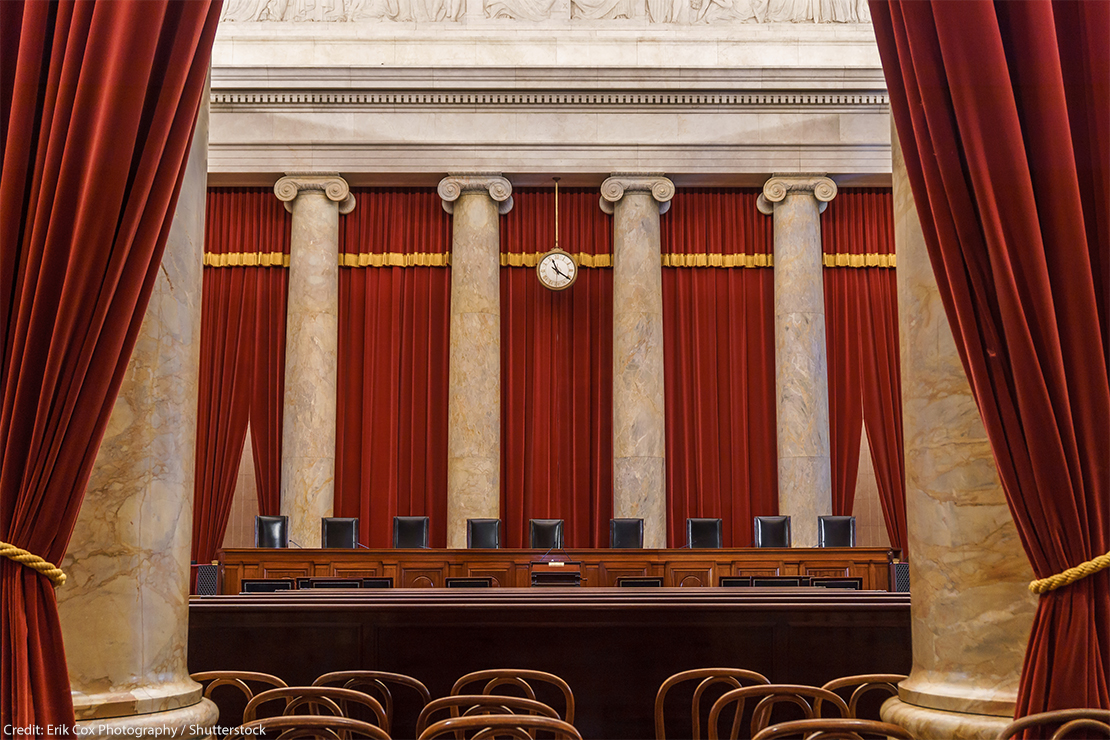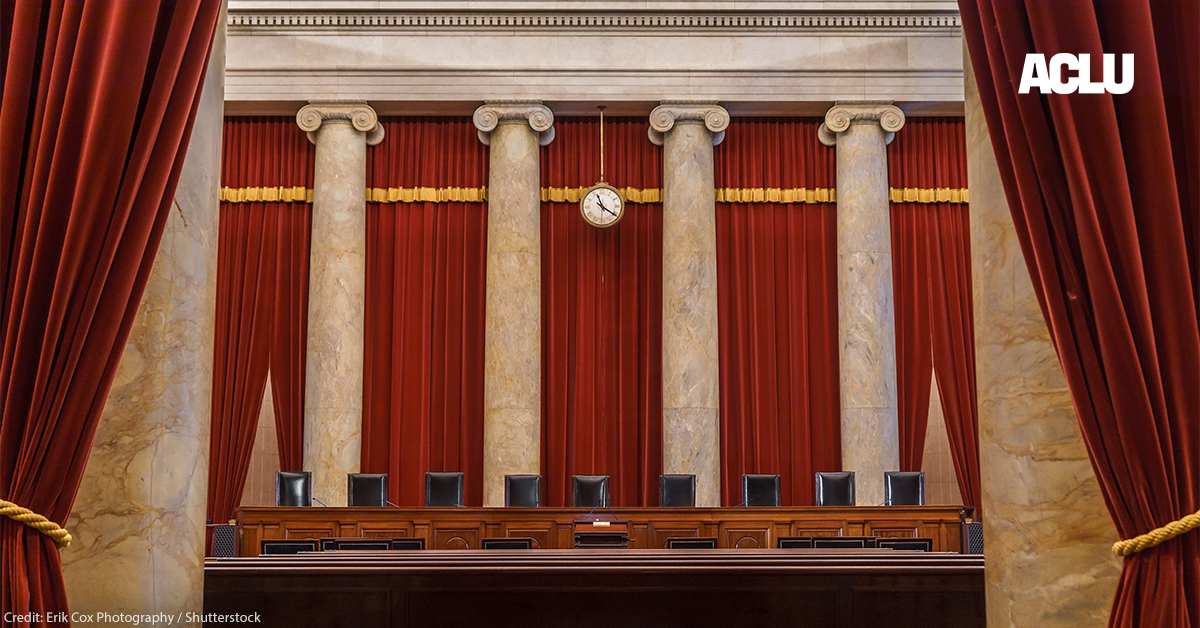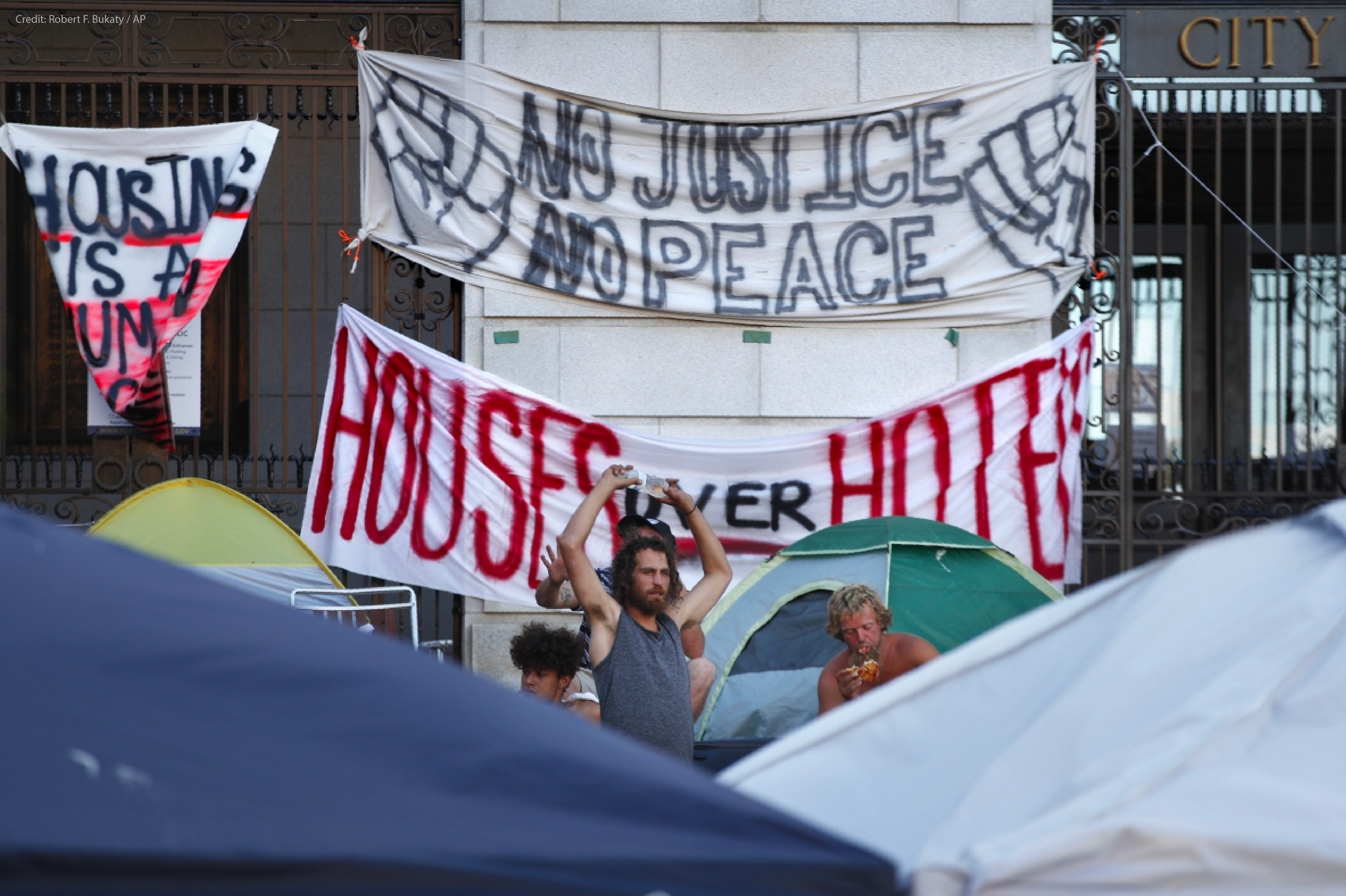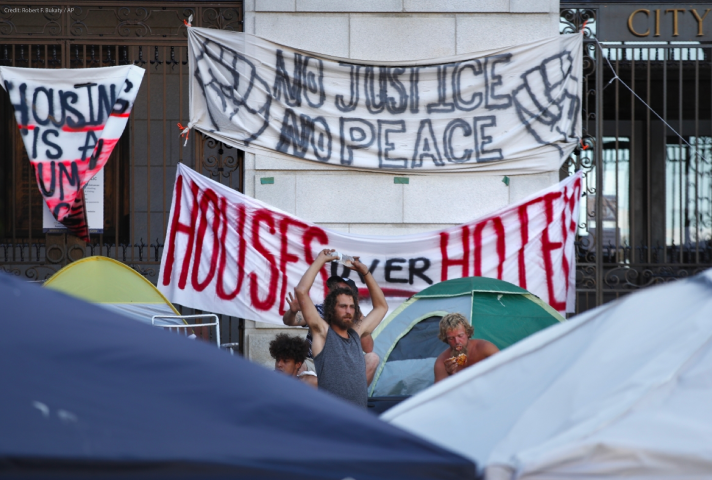It’s that time of year again: The U.S. Supreme Court will convene next week for a new term. While the last few terms have seen the court deliver seismic decisions on abortion, affirmative action, and voting rights, they’ve been tougher to read in another crucial area: criminal justice.
So, before the term begins on October 2, let’s try to break this down. Here’s a look at where the court stands on criminal law reform issues today, and two cases to keep an eye on.
Not rocking the boat in wide-reaching cases
In general, the Supreme Court’s recent criminal law decisions have been less polarized compared to other areas like abortion and affirmative action. Though the court often rules in favor of the government in criminal matters, it sides with defendants in a surprising number of cases.
There’s just one catch: The court tends to side with defendants under narrow circumstances, when their decisions won’t have a wide-ranging impact.
Take the 2020 case of Ramos v. Louisiana, which invalidated non-unanimous juries. The ruling required juries to reach unanimous guilty verdicts in trials for serious felony crimes. In so doing, the 6-3 majority acknowledged the roots of non-unanimous juries in the enforcement of Jim Crow. Blurring ideological lines, conservative justice Neil Gorsuch penned the majority opinion, joined by fellow conservatives Brett Kavanaugh and Clarence Thomas, while liberal justice Elena Kagan joined an opinion written by conservative justice Samuel Alito, along with conservative Chief Justice John Roberts. This decision could help prevent innocent defendants from being convicted and safeguard against decisions based on racial bias.
However, this ruling only affected Louisiana and Oregon, the last two states to maintain this practice. Further, due to excessively harsh sentencing laws and coercive plea bargaining tactics, jury trials have become a rarity. And the court ruled the very next term that its decision is not retroactive, so it can’t be applied to past felony cases; the states will be left to decide which older cases it applies to. The court went even further and held it would no longer apply new rules of criminal procedure retroactively at all.
Taking a tough stance on federal habeas law
The one consistent throughline in the court’s rulings involving the criminal legal system is its continued draconian interpretation of federal habeas law. For instance, in Jones v. Hendrix, the Supreme Court ruled that federally incarcerated people who are actually innocent — because the Supreme Court later found the conduct was not criminal — can still be held in prison without any ability to petition a court for release.
Basically, the Supreme Court used a strict interpretation of the federal Antiterrorism and Effective Death Penalty Act of 1996 (AEDPA). The law states that incarcerated people generally can’t challenge their conviction more than once. There are two exceptions: when new evidence demonstrating innocence emerges, or when a new rule of constitutional law is made retroactive by the Supreme Court. According to the court, Jones’ situation did not fit either exception. He fell into a gaping hole in federal habeas: Though he was actually innocent, it was because of a new legal ruling, not new evidence, and that ruling was based on a federal statute, rather than the Constitution. There were other ways to interpret the statute, but the court rejected them. So an innocent man sits in jail to this day, with no judicial recourse.
Avoiding the big questions
More broadly, the court has avoided answering important criminal procedural questions. For one, the court recently denied review of the ACLU’s case Hester v. Gentry. That lawsuit challenges the widespread practice in Alabama of detaining people prior to trial for weeks or months simply because they cannot afford cash bail. The case argues this practice is unconstitutional, in part because the right to pretrial liberty is fundamental, and cannot be denied unless the government has a compelling reason. The court has not ruled on these issues in nearly 40 years. In its silence, practices like those in Alabama have proliferated across the country.
The court has also generally declined to review cases challenging the qualified immunity doctrine, such as Novak v. Parma. Qualified immunity prevents government officials and law enforcement officers from being sued for money damages for violating someone’s rights. The ACLU has long called for the court or Congress to abolish this doctrine. After Ohio resident Anthony Novak was arrested for publishing a parody of the Parma Police Department’s Facebook page, he filed a civil lawsuit against the department for violating his First Amendment rights. By rejecting Novak’s appeal, the Supreme Court denied any remedy for this constitutional violation.
As the next term approaches, we’re unlikely to see any major changes in the Supreme Court’s stance on criminal justice issues. One case of interest is Pulsifier v. United States, in which the court will decide whether “and” means “and” or “or” under the 2018 First Step Act in determining whether a defendant qualifies for the “safety valve” provision under federal sentencing law. The safety valve allows federal judges to sentence defendants convicted of certain drug crimes below the mandatory minimum, an effort by Congress to mitigate some of the harms from the failed war on drugs. Though a favorable result maintaining broad access to the safety valve is uncertain, it is likely made more plausible by the fact that relief in the case would be narrow: Judges would not be required to sentence below the mandatory minimum; they would simply have the discretion to do so.
McElrath v. Georgia will likely follow a similar pattern. That case involves a law unique to Georgia that creates an exception to the Double Jeopardy clause, namely, by allowing a defendant to be prosecuted a second time for a crime of which they were previously acquitted. The question rests on whether the jury’s acquittal in the first prosecution was “repugnant,” meaning it was inconsistent with the same jury’s findings of guilt on related charges. The case invites the court to reaffirm the importance of both the Double Jeopardy clause and the right to a jury in criminal cases, which the court may well accept given a victory for the defendant would only directly impact a handful of individuals in a single state.
Wins in either of these cases, while welcome, will not change the fact that the court has staked out a conservative middle ground where it will only advance individual rights in cases with less of a ripple effect, while maintaining an inscrutable combination lock on the courthouse doors for defendants asserting these rights. We’ll be watching closely to see if this trend continues in the new term.
Date
Thursday, September 28, 2023 - 11:15amFeatured image



